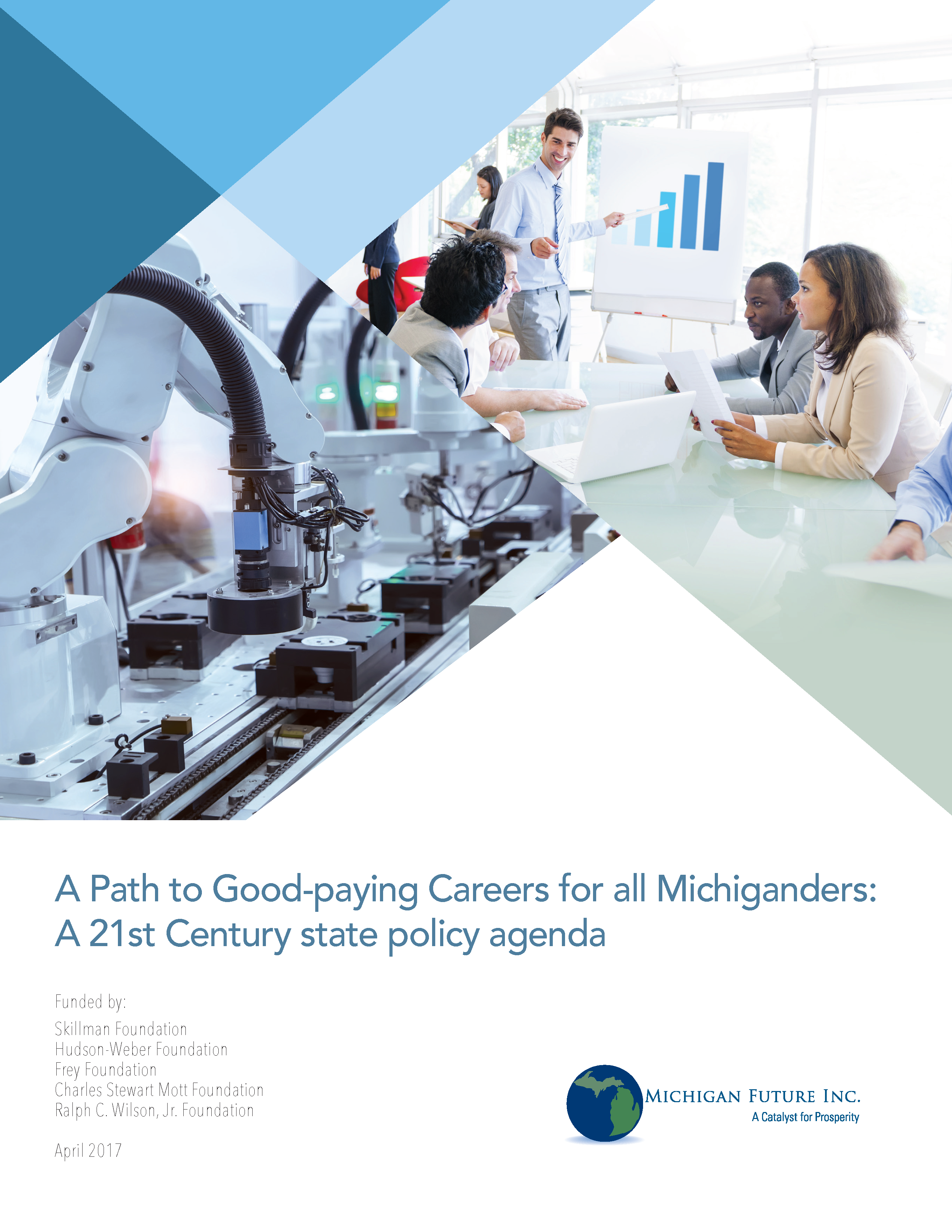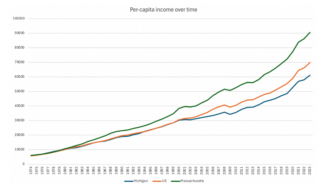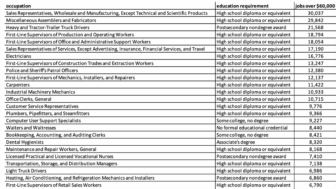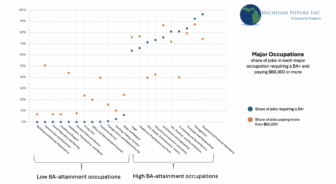The preeminent challenge of our times is figuring out how to reverse what is being called the Great Decoupling. Where even when the economy is ![]() growing––as it has been in Michigan since the end of the Great Recession––only those at the top are benefiting from that growth. The policy priority needs to be reestablishing an economy where as the economy grows all Michigan households enjoy rising incomes.
growing––as it has been in Michigan since the end of the Great Recession––only those at the top are benefiting from that growth. The policy priority needs to be reestablishing an economy where as the economy grows all Michigan households enjoy rising incomes.
In good times and bad far too many Michigan households are experiencing declining or stagnant incomes. Since the turn of the century––no matter who was in control in Lansing and Washington––Michigan has moved from being a high-prosperity to a low-prosperity state.
Most concerning, the Michigan Association of United Ways found that 40 percent of Michigan households do not have sufficient income to pay for the necessities: primarily housing, childcare, food, health care and transportation. Their report makes clear that this is an all Michigan problem: in every county, among all races and all ages.
More broadly our challenges in Michigan are similar to those Robert Putnam documents in his book, Our Kids: that the top quarter of American households are doing well and the other three quarters are struggling to keep up, many falling farther and farther behind. On measure after measure of economic and social well-being of households and their children Putnam presents charts that look like open scissors with those in the top quartile advancing and those in the bottom three quartiles declining.
This pattern is true irrespective of race. Racial discrimination is an ongoing reality in employment, education, housing and the criminal justice system; but class is now the main dividing line in the American economy and increasingly class is defined by college attainment.
We believe to meet this challenge requires the transformation of state economic policy. Starting with a new mission. It should now be clear that having a growing economy, or a low unemployment rate, or being business friendly––all of which have been the goals of state policymakers now and in the past––does not lead to an economy that benefits all.
The key to having an economy with rising household incomes for all are good-paying jobs and careers. Where careers are for forty years, not a first job. We believe the prime focus of economic policy must be helping people have a career of good-paying work. Aligned with the reality that good-paying work today and, even more so, tomorrow looks much different than good-paying work in the past.
Who knows when autonomous vehicles will replace truck drivers; software, not healthcare professionals, will do diagnostics; software, not financial advisors, will provide us with investment advice; machines will move materials in warehouses; on and on and on. It is a matter of when, not if, much work now done by humans will be done by smarter and smarter machines.
Its not that work will disappear but that most of us are going to have to be able to adapt and learn new skills to be able to have successful forty-year careers. That requires a transformation in our system of lifelong learning and how we support people as they transition from one occupation to the next and more and more of us are contingent workers.
From our perspective this is what the 2018 Michigan election for Governor and state legislature should be about. How specifically are candidates going to raise household income for all in the context of an economy where the nature of work is being constantly transformed. We need to find a way to shape the conversation so that candidates in both parties find it hard to offer the same proposals they have been running on for decades that have not worked.
Where telling us they have the magic elixir to turn the clock back and recreate a prosperous 20th Century Michigan economy is not acceptable. Where telling us that having some combination of a growing economy, low unemployment and good business climate ratings will lead to a rising standard of living for all is not acceptable. We have all now and clearly we do not have an economy that is benefitting all. And where not talking about how to pay for improving education and infrastructure––which nearly all candidates tell us they want––is not acceptable.







